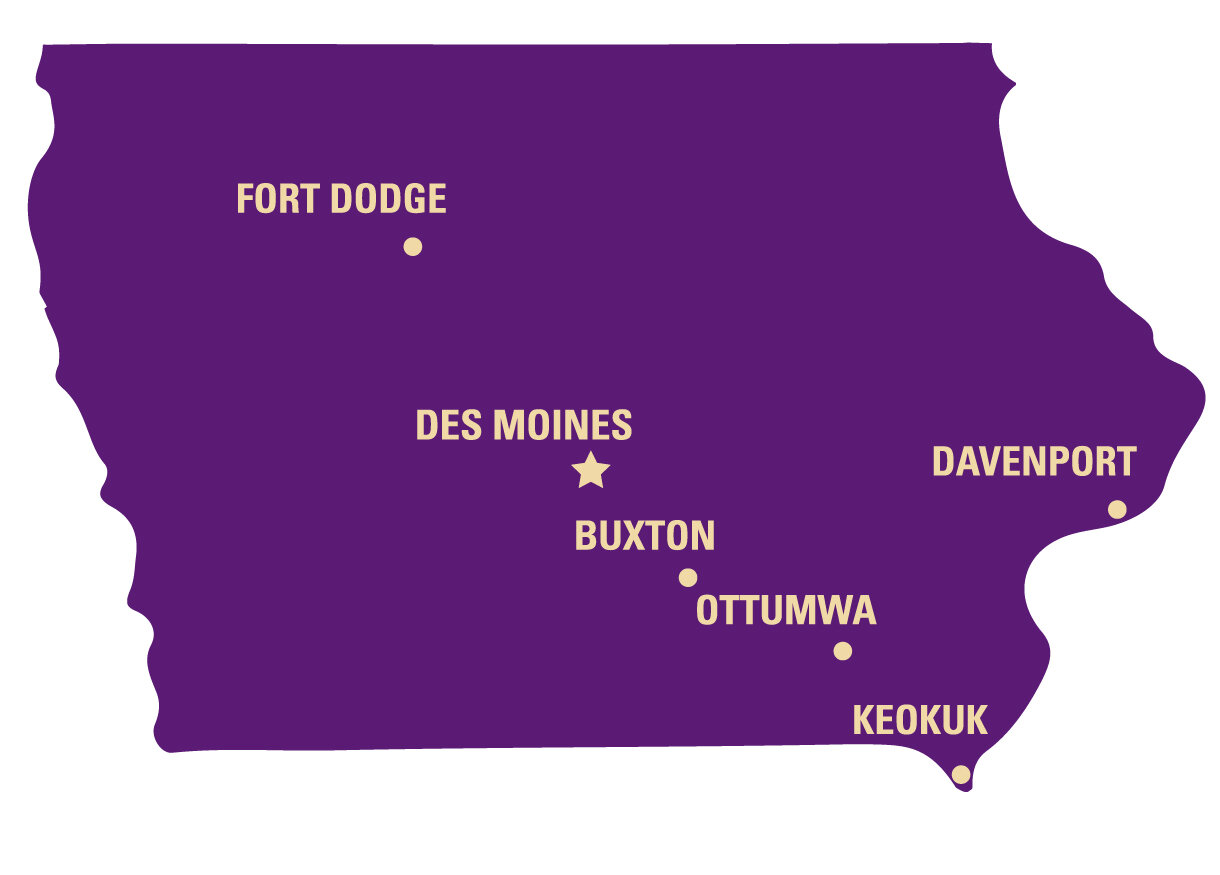Toward A Universal Suffrage > Important Places in Suffrage and Civil Rights History
Putting Iowa’s African American Women on the Map: Important Places in Suffrage and Civil Rights History
Courtesy the Catt Center for Women and Politics at Iowa State University.
Buxton was a company coal mining town, named after Ben Buxton, the president of the Consolidation Coal Company. Beginning in the 1890s, Buxton attracts a large African American population to work in the coal mines. During the late 19th and early 20th centuries, many African Americans migrate to northern states to find better employment and economic conditions. Buxton was noted for being a multi-ethnic community with no legal segregation. The majority of residents were African American.
Buxton played an important role in the suffrage movement. The parents of suffrage leader Sue M. Wilson Brown moved to Buxton from Virginia. In June of 1916, a Family Parade was held and the women, men, and children who marched in this parade supported women’s suffrage.
Davenport: The Iowa Federation of Colored Women's Clubs forms a standing suffrage committee headed by Teresa Adams in 1914.
Des Moines: Gertrude E. Rush, the first African American woman to practice law in Iowa, bases her practice in Des Moines. Rush is a member of the Colored Women’s Suffrage Club and a speaker in support of suffrage at the 1912 Women’s Convention. After being denied membership in the American Bar Association, she and four other African American lawyers found what is now known as the National Bar Association (NBA) in 1925. In 2018, “A Monumental Journey,” a sculpture by Kerry James Marshall, is erected at the intersection of Grand and 2nd Avenues in Des Moines to commemorate the founders of the NBA.
Ottumwa was a center of African American women’s club activity which included work to gain votes for women. The Iowa Association of Colored Women's Clubs, later known as the Iowa Federation of Colored Women's Clubs, was founded in 1902, with Helen Downey of Ottumwa as the first president.
Des Moines, Keokuk, and Fort Dodge: The Des Moines League of Colored Women Voters is organized in August of 1919, with Sue M. Wilson Brown as its founder and first president. Leagues are also formed in Keokuk and Fort Dodge.


